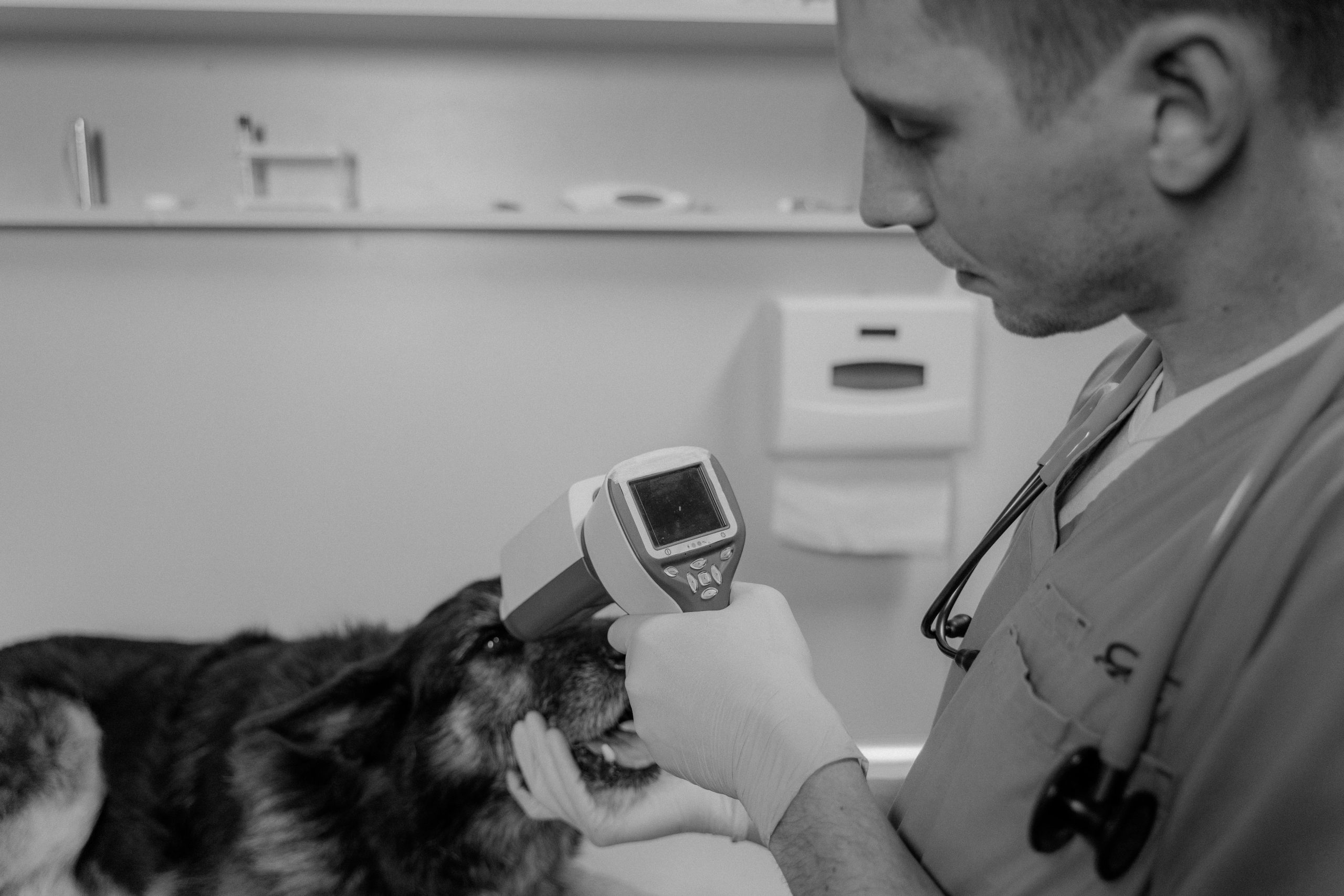Microchipping your pet is a common practice used to identify and reunite lost or stolen dogs with their owners. Here’s some information about microchips in dogs:
- What is a Microchip? A microchip is a tiny electronic device, about the size of a grain of rice, that is implanted just under the skin of a dog. Each microchip contains a unique identification number that can be read using a special scanner.
- How Does it Work? When a lost dog is found and brought to a shelter, veterinary clinic, or animal control facility, a handheld scanner is used to read the microchip. The scanner displays the unique ID number stored on the chip. This number is linked to a database that contains the owner’s contact information.
- Implantation Process: Microchipping is a simple and relatively painless procedure. A veterinarian or trained professional uses a syringe-like device to insert the microchip under the loose skin between the dog’s shoulder blades. It’s a quick process and doesn’t require anesthesia.
- Importance: Microchipping is a reliable way to ensure that a lost dog can be identified and returned to its owner, even if the collar and ID tags have been removed or lost. It’s an essential part of responsible pet ownership.
- Registration: After implantation, it’s crucial to register the microchip with the appropriate pet recovery database. This involves providing your contact information and ensuring it stays up-to-date. If you move or change your phone number, be sure to update your microchip registration.
- Cost: The cost of microchipping varies depending on where you have it done, but it’s usually affordable, and some animal shelters or organizations may offer it at a reduced price or for free during special events.
- Compatibility: Microchips use RFID (Radio-Frequency Identification) technology, and there are different frequencies used in different regions. It’s important to ensure that the microchip used is compatible with the scanners commonly used in your area.
- Permanent ID: Unlike collars and tags, which can fall off or be removed, a microchip is a permanent form of identification. It doesn’t need batteries or maintenance and will last for the dog’s lifetime.
- Privacy and Security: Microchip data typically includes only the owner’s contact information. Concerns about privacy and security are relatively low because this information is not readily accessible to the public.
Remember that while microchipping is an excellent tool for reuniting lost pets with their owners, it should be used in conjunction with other forms of identification, such as a collar with an ID tag, to increase the chances of a speedy reunion if your dog goes missing.
Importance of Pet Microchipping
- Identification: Microchipping your pet is a permanent form of identification that can help reunite you with your pet if they are lost or stolen. Unlike collars or tags, which can fall off or be removed, a microchip is embedded under your pet’s skin and can be scanned by a veterinarian or animal shelter to retrieve your contact information.
- Safety: Microchipping can help keep your pet safe in emergency situations. For example, if your pet is injured and brought to a veterinarian, the microchip can quickly provide the veterinarian with important information about your pet’s medical history, allergies, and any medications they may be taking.
- Compliance: In some areas, microchipping is required by law. For example, many municipalities require dogs to be microchipped as a condition of licensing.
- Peace of Mind: Knowing that your pet is microchipped can provide you with peace of mind, knowing that if anything were to happen to your pet, you have taken a proactive step to help ensure their safe return.
Overall, microchipping your pet is a simple and affordable way to help ensure that they are properly identified and can be quickly reunited with you if they ever become lost.







